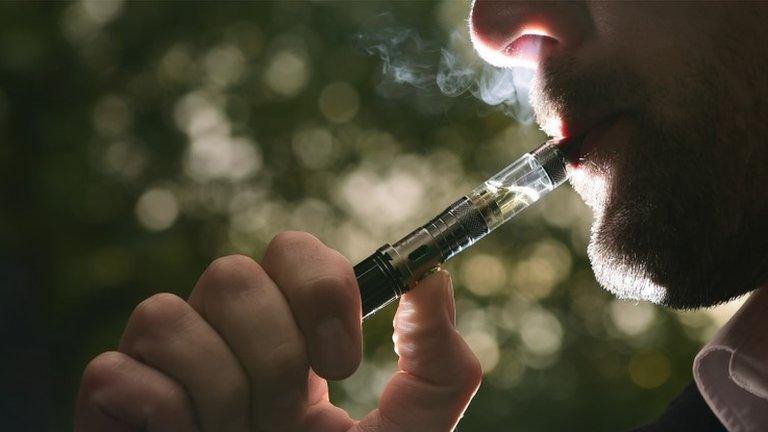Prison smoking ban could cause 'stability issues'
- Published
- comments
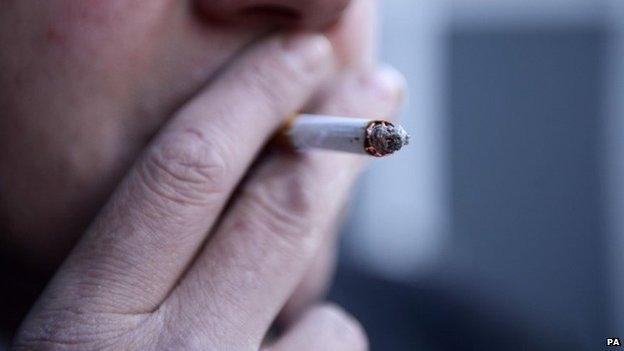
Banning smoking in prisons in England and Wales could make them more unstable, the Prison Governors Association (PGA) has warned.
Ministers are drawing up plans to convert the first jails to be smoke-free next year.
PGA president Andrea Albutt "cautiously" welcomed the move but said it must be done in a "safe and staged" way as 80% of prisoners smoked.
The Ministry of Justice said safety and security remained its "top" priorities.
The government intends to ban smoking in all 136 prisons in England and Wales to reduce health risks, external - it is currently allowed only in prison cells and exercise yards.
The move follows a series of legal challenges by prison officers and inmates who have complained about the effects of passive smoking.
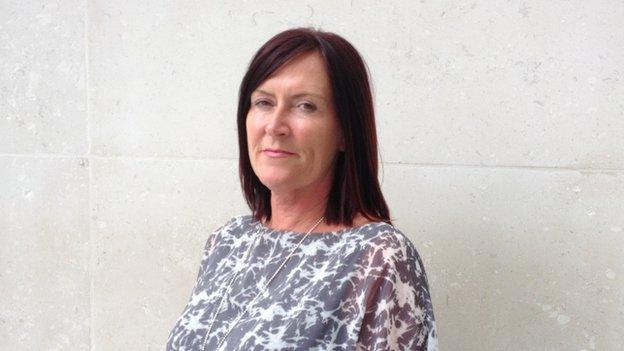
Andrea Albutt has warned the government over the risks of banning smoking in prisons
Mrs Albutt, who has governed four prisons, most recently Bristol, is heading a team that will be implementing the changes.
The privately run Parc Prison, in south Wales, is expected to go smoke-free next year, and publicly-run jails in Wales and south-west England are likely to follow.
'Stability issues'
Speaking on behalf of the Prison Governors Association, Mrs Albutt said the organisation agreed with the ban but said it had to be done in a managed and gradual way to avoid unrest, as about 80% of prisoners were smokers.
Stopping them smoking could result in "stability issues", she told BBC News, in her first interview since becoming the organisation's president on an interim basis.
She added that banning tobacco would create "potential problems" because it risked turning it into an illicit item to be smuggled in and traded by prisoners as "currency".
Joe Simpson, assistant general secretary for the Prison Officers Association, compared the effects of passive smoking on prison officers with the risks posed to bar workers before smoking in pubs was banned.
"All we are asking is for something that will help protect our members," he said.
A Ministry of Justice spokesman said: "We are continuing to consider how to reduce the prevalence of smoking across the prison estate but the safety and security of prisons will always be our top priority."

Ex-inmate's view
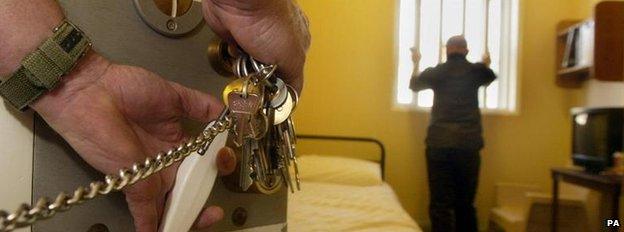
Razor Smith, who served three decades in prison for a spate of armed robberies, said:
I served time in a juvenile prison in the 70s where there was no smoking and I can tell you... there was a great black market in tobacco goods.
There's a black market in anything, in any banned goods.
Whether you like it or not, tobacco is a way of dealing with stress and a lot of prisoners smoke.
If you were to take it away from them, after they've had it for so many years, it becomes like a war of attrition with the prison system and they then see the prison system as taking something away that is legitimate, that you're allowed to do outside - and obviously there will be violence.
They tried it in Australia a couple of weeks ago I think and there was an immediate riot.

Scotland is also considering tighter restrictions on smoking in jails.
The Scottish Prison Service said it aimed to have plans in place by December 2015 on how indoor smoke-free prison facilities would be delivered.
But the Northern Ireland Department of Justice said it had no plans to change the current rules, under which smoking is permitted in prison cells and certain open spaces.
'Drug epidemic'
Mrs Albutt, the first woman to lead the Prison Governors Association since it was founded 28 years ago, said the current priority of governors was to address the problems caused by new psychoactive substances (NPS), sometimes referred to as "legal highs" - synthetic drugs that mimic the effects of cannabis, ecstasy and cocaine.
"The problem is... an epidemic across the prison estate. As such it needs to be tackled strategically," she said, adding that many offenders would not be able to engage in education and training until prisons were clear of the "mind-altering" drugs.
The Ministry of Justice acknowledged the "huge challenge" posed by NPS and agreed it had to be tackled before preparing offenders to lead better lives.
The move has prompted debate on both sides of the argument:
Colin Tier in Portsmouth: "I have spent 21 years in prison, about 10 of which, I was a smoker. The question at the moment should be: 'Is it worth tempting a repeat of the 90s prison riots?'. Implementing a smoking ban in all prisons is definitely going to test that question."
Dawn Johnson in Cumbria: "Is smoking a right? Prisoners should lose all rights the moment they are locked up - it's prison not a holiday camp."
Marilyn Mundy in Manchester: "I agree that non-smoking prisoners should not have to breathe in smoke, but to take away something which is obviously a stress reduction habit from a life-long smoker will cause behaviour problems. Prisoners may have their liberty removed, but they are entitled to food, water, shelter and medication, including that which helps with addiction."
Barry Lorking: "Having not long ago finished 31 years' service within prisons, all I can say is if governors try to implement a smoking ban in the way they have tried to stop drugs coming into prison, then I am not sure anyone will notice this ban."
Vernon in Hampshire: "Yes it should be banned, take all the privileges away, turn prisons into boot camps with strict regimes, discipline, re-training, education."
- Published21 July 2015
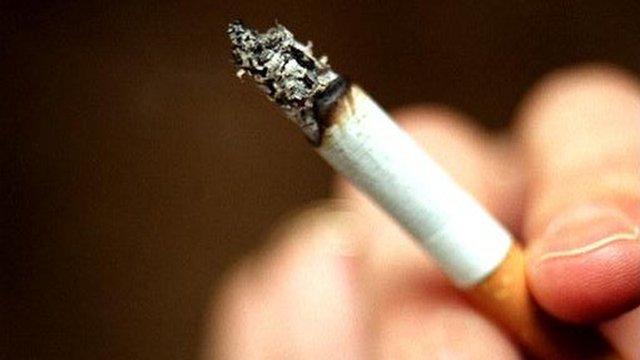
- Published5 March 2015
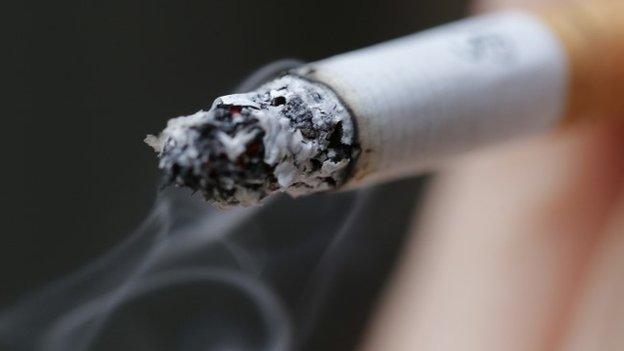
- Published3 July 2015

- Published24 December 2014
